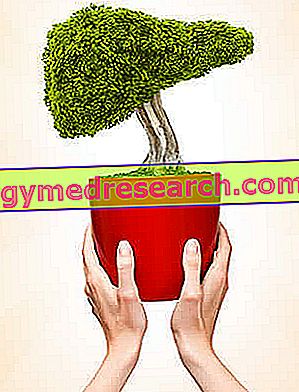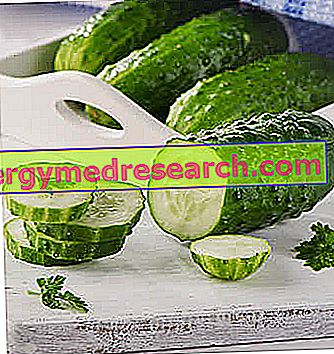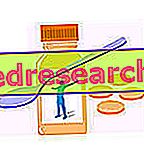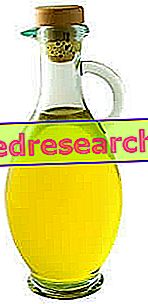Hepatitis B
Hepatitis B is an infectious disease caused by the HBV virus, which affects the liver in an acute or chronic way (the chronic form is widespread especially in those who contract the virus at the time of birth).
About a third of the world's population has been infected with HBV, including 240-350 million chronic cases.

The disease is widespread especially in East Asia and Sub-Saharan Africa, where between 5 and 10% of adults become chronic. The incidence rate in Europe and North America is less than 1% and is declining due to the adoption of mandatory vaccination prophylaxis (an obligation that has existed in Italy since 1991).
After the infection, in the initial phase, many people do not show any symptoms while others develop symptoms characterized by: vomiting, jaundice, fatigue, dark urine and abdominal pain (for about two weeks - rarely acute hepatitis leads to death). In the chronic phase there is no symptom but deadly complications such as cirrhosis and liver cancer can develop (15-25% of chronic cases).
Contagion
The HBV virus is transmitted with exposure to infected blood or body fluids (sperm, vaginal fluid, etc.), especially at the time of birth or during infancy; It does NOT happen holding hands, sharing cutlery, kissing, hugging, coughing, sneezing or breastfeeding.
Unlike hepatitis A and hepatitis E, hepatitis B is NOT transmitted through the consumption of water or food contaminated with infected faeces.
In areas where the disease is rare, the most frequent causes are intravenous drug use and unprotected intercourse. Other risk factors include: medical work, blood transfusions, dialysis, cohabitation with an infected person, travel to countries with a high infection rate and cohabitation in collective institutions.
The diagnosis is made 30 to 60 days after exposure, analyzing the blood (research for viruses and antibodies).
Since 1982, prevention is mainly vaccination (recommended by the World Health Organization from the first day of life).
Nutritional Objectives
Since the liver performs many different functions (oncotic pressure, transport protein synthesis, bile production, glycemic homeostasis, drug metabolism, etc.), its possible loss of function seriously compromises the balance of the entire organism.
After the type B viral infection it is therefore necessary:
- Decrease the functional demands of the body.
- Decrease the workload of the organ.
- Facilitate remission from the B virus by better supporting the body.
Hepatitis B and Diet
The dietary rules essential to restoring the normal condition (healing or chronicization) can be summarized as follows:
- If present, removal of ethyl alcohol in the diet. In addition to harming the liver organ directly, it compromises the metabolism of vitamin B1, which is the only vitamin that the body is unable to store.
- If present, elimination of medications and food supplements NOT necessary.
- Excluding unhealthy foods and beverages such as: industrial sweet and savory snacks, French fries, croquettes, pancakes, hamburgers and other fast-foods, sweet drinks (carbonated or not), sweetened American coffee and / or with milk cream etc; these foods, called junk-foods, are rich in saturated or hydrogenated fats (with chains in trans form), refined carbohydrates (sucrose, maltose, added granular fructose), food additives (dyes, flavor enhancers, preservatives, sweeteners, etc.) and toxins typical of over-intense cooking (acrylamide, formaldehyde, acrolein, polycyclic aromatics, etc.).
- Prefer fresh foods (possibly frozen) or raw, compared to processed or refined ones. Many processes, such as bleaching and depriving the bran from flour, or mixing meat / fish with other ingredients to create sausages or croquettes, use chemical-physical systems that deplete the food. In some cases, nutrients and important nutritional components such as fiber, vitamins and minerals are reduced by almost 80%. Recall that vitamins are coenzymatic factors essential to various cellular processes and that the liver possesses one of the most specialized tissues of the whole organism. Normally, the liver is also a rather important vitamin reserve but, if compromised, it does not properly fulfill this function; in this case, the diet must be constantly rich in these nutrients to better support the organism's needs.
- Do not eat excessively abundant or nutritious meals. Excess energy (fats, carbohydrates and proteins) always causes an overload of liver functions (neoglucogenesis, glycogenosynthesis, lipogenesis etc.), which is why it is necessary to reduce the volume of meals and increase the number.
- Do not face prolonged fasts (beyond 12-14 hours). The liver is normally responsible for glycemic homeostasis, so if it does not work properly, the glycemic balance may be compromised. Not only, trying to maintain blood sugar levels through neoglucogenesis (production of glucose from amino acids, etc.), the liver would face an even greater amount of work; in practice it is not said that, if infected by the B virus, the organ is able to perform this function correctly.
- In the case of celiac disease, it is strictly necessary to emphasize food hygiene by meticulously abolishing even the traces of gluten. This protein, typical of wheat, spelled, spelled, rye, barley, oats and sorghum, is very harmful for those suffering from specific intolerance. Typically, a neglected celiac disease increases the rate of systemic inflammation and can worsen a clinical picture of hepatitis B.
- Do not drink non-drinking water and do not take potentially contaminated food or drink. Let us recall again that, in the case of hepatitis B, the liver loses a percentage of its functionality and would not be able to properly metabolize harmful residues such as chemical traces, drugs, etc.
- Promote the consumption of fruit and vegetables. These foods are rich in nutrients and nutritional elements (vitamins, salts, phenolics, etc.) that can help fight inflammation. Fruits and vegetables should be consumed daily in 4-5 portions of 150-300g each, taking care to place the fruit in secondary meals and / or at breakfast (so as not to excessively increase the glycemic load of the main ones, already rich in cereals, legumes) and potatoes).
- Increase the intake of beneficial nutrients for the liver. In addition to the vitaminic, saline and phenolic factors mentioned above, certain phytoelements that play a hepato-protective role, such as cynarin and silymarin of artichoke and milk thistle, are also very useful.
- Emphasize the polyunsaturated fraction of the fats at the expense of the saturated one; in particular, it would be useful to promote the intake of essential fatty acids from the omega 3 group. These are precursors of anti-inflammatory factors and can help the body reduce general inflammation; on the contrary, it is better not to exceed with omega 6 and in particular with arachidonic acid, which could exert a diametrically opposite effect (see details). In concrete terms, the most recommended foods are: blue fish (mackerel, mackerel, bonito, anchovies, sardines, etc.), some oil seeds (almonds, sesame, etc.) and some cold-pressed vegetable oils (extra virgin olive oil, seeds) of linen, walnut, etc.).



